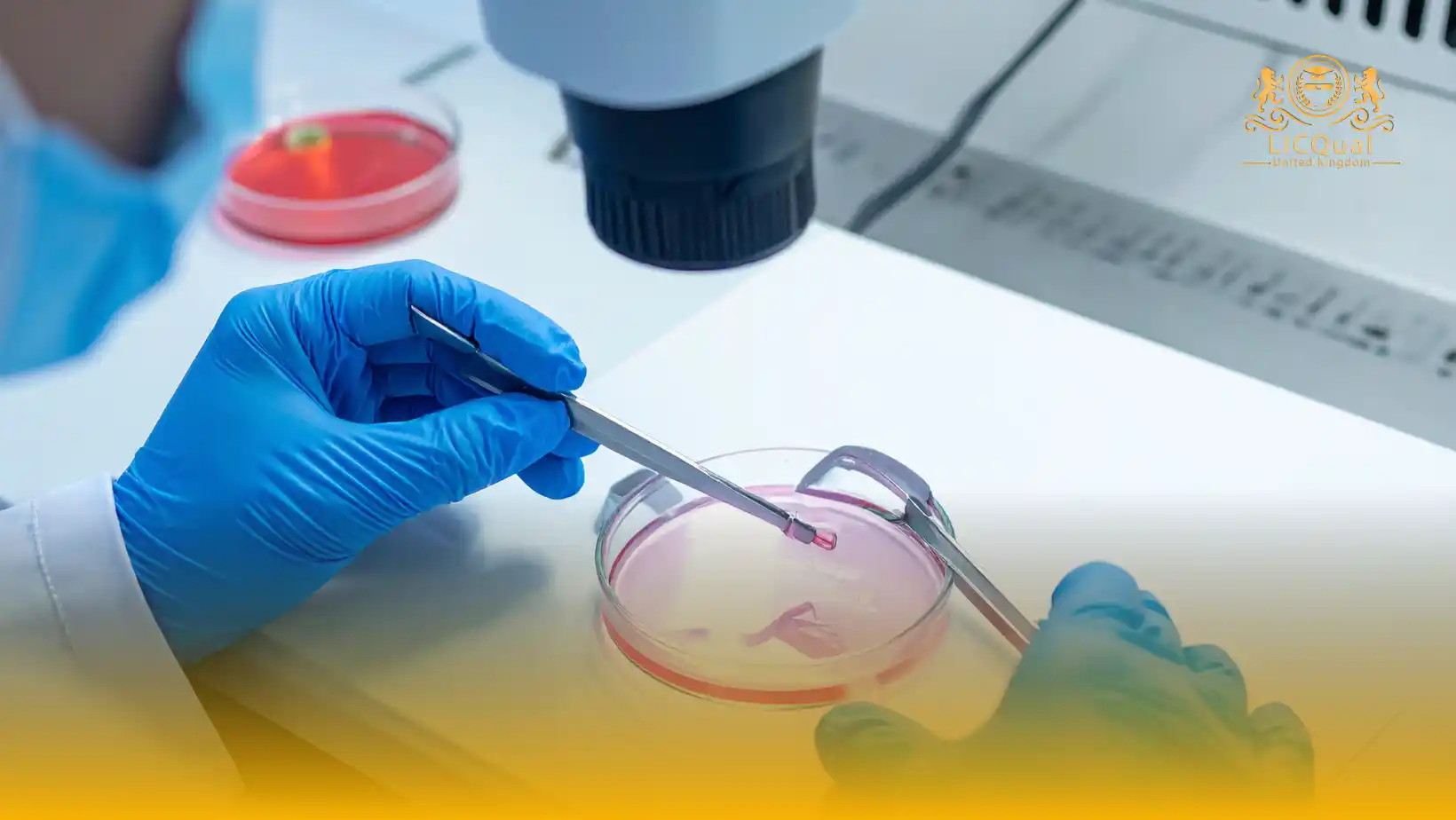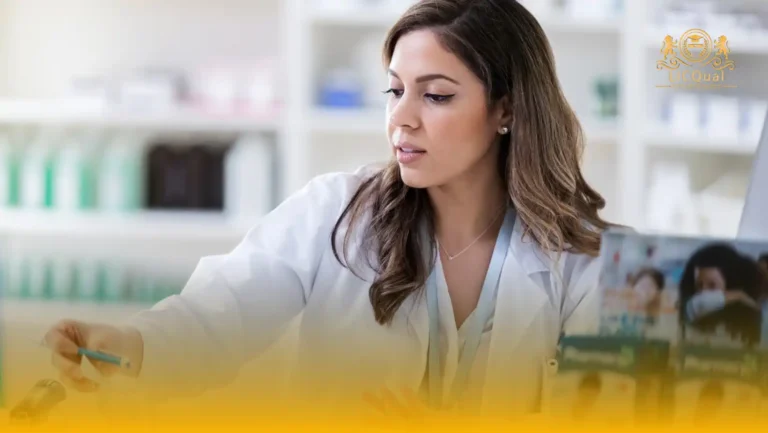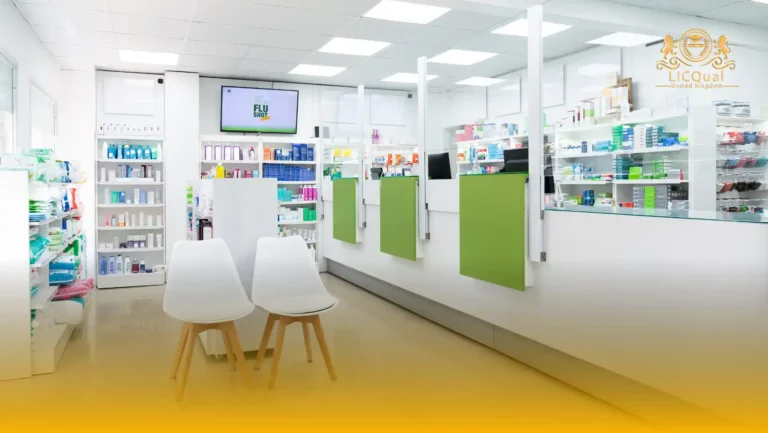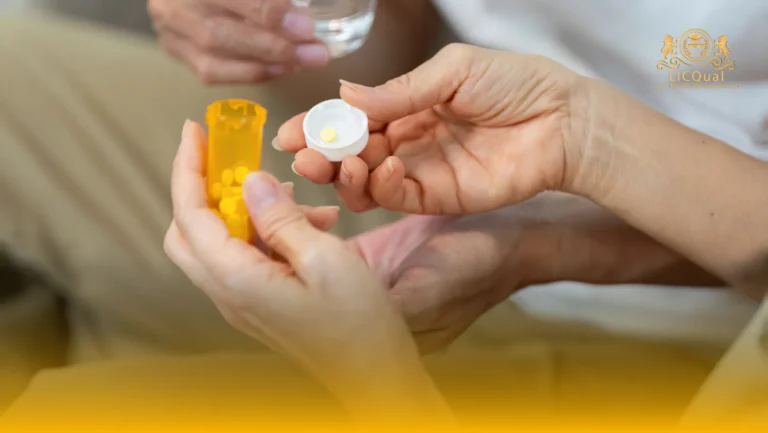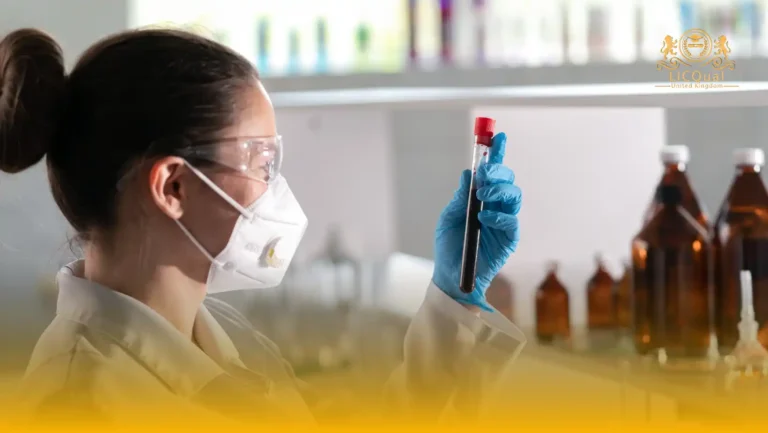The LICQual Level 3 Diploma in Reproductive Endocrinology and Infertility (Dip REI) is a specialised qualification designed for healthcare professionals seeking to enhance their expertise in reproductive health, endocrinology, and infertility management. This course is intended for learners who already have a foundational knowledge in healthcare and wish to advance their career prospects, deepen their clinical understanding, and strengthen their Continuing Professional Development (CPD).
This diploma provides comprehensive coverage of reproductive endocrinology, including the physiology of the reproductive system, hormonal regulation, common infertility causes, diagnostic procedures, and advanced fertility treatments. Learners will gain in-depth knowledge of assisted reproductive technologies, patient assessment, clinical management strategies, and evidence-based practices to improve patient outcomes. The course emphasises both theoretical understanding and practical application, equipping learners to deliver high-quality reproductive care in clinical settings.
To ensure high-quality training and learner success, centres delivering this qualification must have competent and qualified staff with professional experience in reproductive health, endocrinology, or fertility treatment. Centres should also provide access to comprehensive learning resources, clinical facilities, and practical tools to support applied learning and skill development.
Completing the LICQual Level 3 Diploma in Reproductive Endocrinology and Infertility equips learners with the professional credibility, knowledge, and practical skills required to take on advanced roles in fertility clinics, hospitals, and specialist reproductive health services. This qualification is ideal for dedicated healthcare professionals who are committed to improving patient care, advancing their expertise in reproductive medicine, and staying at the forefront of this evolving field.
Course Overview
Qualification Title
LICQual Level 3 Diploma in Reproductive Endocrinology and Infertility (Dip REI)
Total Units
6
Total Credits
60
GLH
240
Qualification #
LICQ2200908
Qualification Specification
To enroll in the LICQual Level 3 Diploma in Reproductive Endocrinology and Infertility (Dip REI), applicants must meet the following criteria:
|
Qualification# |
Unit Title |
Credits |
GLH |
|---|---|---|---|
|
LICQ2200908-1 |
Introduction to Reproductive Endocrinology |
10 |
40 |
|
LICQ2200908-2 |
Causes and Diagnosis of Infertility |
10 |
40 |
|
LICQ2200908-3 |
Assisted Reproductive Technologies (ART) |
10 |
40 |
|
LICQ2200908-4 |
Patient Assessment and Management |
10 |
40 |
|
LICQ2200908-5 |
Research and Evidence-Based Practice in Reproductive Medicine |
10 |
40 |
|
LICQ2200908-6 |
Professional Practice and CPD in Reproductive Medicine |
10 |
40 |
By the end of this course, learners will be able to:
Unit 1: Introduction to Reproductive Endocrinology
By the end of this unit, learners will be able to:
- Explain the anatomy and physiology of the male and female reproductive systems.
- Describe hormonal regulation and its role in reproductive health.
- Discuss fundamental principles of reproductive endocrinology.
- Analyse factors affecting reproductive function and fertility.
Unit 2: Causes and Diagnosis of Infertility
By the end of this unit, learners will be able to:
- Identify common causes of infertility in males and females.
- Explain diagnostic procedures and fertility assessment techniques.
- Interpret clinical findings to support infertility diagnosis.
- Apply evidence-based approaches to evaluate patient reproductive health.
Unit 3: Assisted Reproductive Technologies (ART)
By the end of this unit, learners will be able to:
- Describe advanced fertility treatments including IVF, ICSI, and embryo transfer.
- Explain protocols for egg and sperm donation in assisted reproduction.
- Demonstrate knowledge of ART laboratory and clinical procedures.
- Analyse the effectiveness and limitations of different ART techniques.
Unit 4: Patient Assessment and Management
By the end of this unit, learners will be able to:
- Conduct comprehensive reproductive health assessments for patients.
- Develop personalised care and management plans for fertility patients.
- Apply clinical decision-making to manage male and female reproductive health cases.
- Evaluate patient progress and adapt management strategies accordingly.
Unit 5: Research and Evidence-Based Practice in Reproductive Medicine
By the end of this unit, learners will be able to:
- Analyse current research and clinical trials in reproductive endocrinology and infertility.
- Apply evidence-based practice to clinical decision-making.
- Evaluate emerging treatments and innovations in reproductive medicine.
- Critically assess clinical guidelines to improve patient care outcomes.
Unit 6: Professional Practice and CPD in Reproductive Medicine
By the end of this unit, learners will be able to:
- Demonstrate professional and ethical responsibilities in reproductive medicine.
- Apply principles of clinical governance and multidisciplinary teamwork.
- Develop a personal Continuing Professional Development (CPD) plan to enhance knowledge and skills.
- Reflect on clinical practice to identify areas for improvement and professional growth.
The LICQual Level 3 Diploma in Reproductive Endocrinology and Infertility (Dip REI) is designed for healthcare professionals, medical graduates, and allied practitioners who want to specialize in reproductive health, hormonal regulation, and infertility management. This CPD-accredited diploma is ideal for those seeking international recognition, career advancement, and flexible online training that equips them with evidence-based knowledge in fertility treatments, assisted reproductive technologies (ART), and reproductive endocrinology.
1. Medical Doctors and Physicians
- Strengthen diagnostic and treatment skills in reproductive endocrinology
- Gain advanced knowledge of infertility causes and hormonal disorders
- Apply evidence-based approaches to fertility treatments and ART
- Improve patient outcomes with specialized reproductive health training
- Enhance professional credibility with an accredited diploma
2. Gynecologists and Obstetricians
- Develop expertise in managing infertility and reproductive disorders
- Learn advanced protocols for IVF, IUI, and hormonal therapies
- Expand clinical scope with a Diploma in Reproductive Endocrinology and Infertility (Dip REI)
- Access CPD-accredited training for career progression
- Gain confidence in supporting patients through fertility journeys
3. Nurses and Clinical Practitioners
- Build skills in patient-centered reproductive health care
- Learn to support fertility treatments and hormonal therapy management
- Strengthen knowledge of reproductive endocrinology and infertility care
- Collaborate effectively with doctors and fertility specialists
- Add a specialized qualification to enhance career opportunities
4. Medical Graduates and Postgraduate Students
- Build a strong foundation in reproductive endocrinology for future specialization
- Gain a competitive edge in postgraduate medical applications
- Access flexible online learning while continuing clinical rotations
- Learn from expert-led modules aligned with international standards
- Earn a diploma that strengthens both academic and professional profiles
5. Fertility Specialists and ART Professionals
- Deepen expertise in assisted reproductive technologies (IVF, ICSI, IUI)
- Learn advanced techniques in embryo transfer and fertility preservation
- Strengthen clinical practice with evidence-based reproductive endocrinology
- Gain recognition with a CPD-accredited reproductive health diploma
- Enhance employability in fertility clinics and reproductive centers
6. International Healthcare Professionals
- Designed for global learners seeking UK-accredited qualifications
- Access flexible online study from anywhere in the world
- Gain recognition with an internationally respected diploma
- Learn best practices in reproductive endocrinology aligned with global standards
- Enhance employability in hospitals, fertility clinics, and global health organizations
7. Professionals Seeking Career Advancement
- Ideal for those aiming to specialize in reproductive endocrinology and infertility
- Boost career growth with a niche medical qualification
- Gain recognition for advanced expertise in fertility and hormonal care
- Open pathways to leadership, teaching, and research roles
- Strengthen your CV with a Diploma in Reproductive Endocrinology and Infertility (Dip REI)
To deliver the LICQual Level 3 Diploma in Reproductive Endocrinology and Infertility effectively, centres must meet specific standards to ensure high-quality training, practical learning, and learner success. The requirements include:
- Qualified and Competent Staff: Centres must employ instructors with relevant qualifications, clinical experience in reproductive health or fertility treatment, and expertise in delivering Level 3 healthcare programmes. Staff should be capable of providing both theoretical instruction and practical guidance.
- Comprehensive Learning Resources: Centres should provide up-to-date textbooks, digital learning materials, case studies, and access to current research in reproductive endocrinology and infertility to support effective learning.
- Practical Facilities and Equipment: Centres must have access to clinical facilities, laboratories, and equipment necessary for practical training in fertility assessments, diagnostics, and assisted reproductive technologies (ART).
- Safe and Accessible Learning Environment: Training areas must comply with health and safety regulations, offering a secure, clean, and fully accessible environment for all learners.
- Assessment and Quality Assurance Processes: Centres should implement robust assessment strategies, feedback mechanisms, and quality assurance systems to maintain high academic and professional standards.
- Support for CPD and Professional Development: Centres must encourage learners to engage in Continuing Professional Development through workshops, seminars, and additional learning opportunities relevant to reproductive medicine.
- Administrative and Logistical Support: Centres must provide efficient enrolment, record-keeping, and learner support services to guide learners throughout their course journey.
Meeting these centre requirements ensures learners receive a high-quality, structured, and professionally recognised Level 3 qualification, equipping them with the knowledge, skills, and confidence to advance in reproductive endocrinology and fertility practice.
Assessment and Verification
All units within this qualification are subject to internal assessment by the approved centre and external verification by LICQual. The qualification follows a criterion-referenced assessment approach, ensuring that learners meet all specified learning outcomes.
To achieve a ‘Pass’ in any unit, learners must provide valid, sufficient, and authentic evidence demonstrating their attainment of all learning outcomes and compliance with the prescribed assessment criteria. The Assessor is responsible for evaluating the evidence and determining whether the learner has successfully met the required standards.
Assessors must maintain a clear and comprehensive audit trail, documenting the basis for their assessment decisions to ensure transparency, consistency, and compliance with quality assurance requirements.

